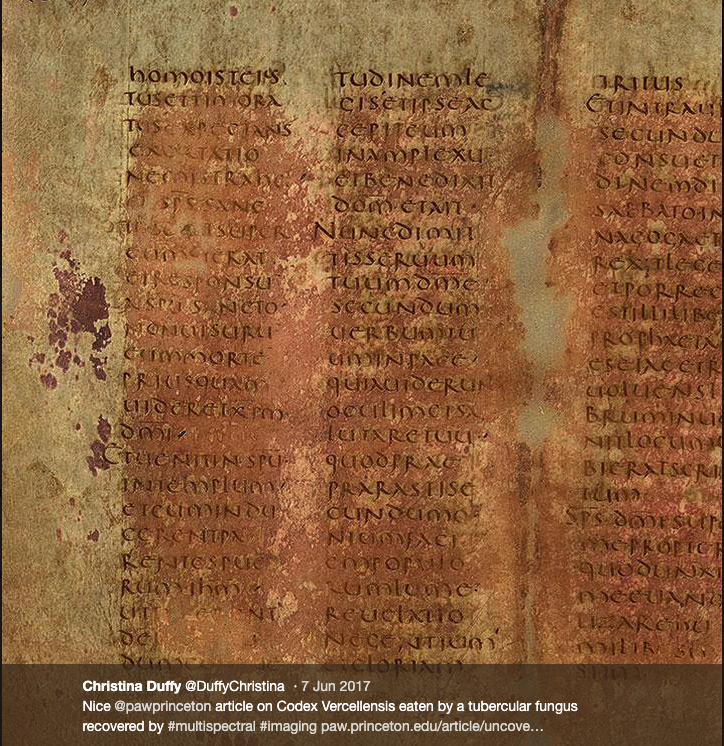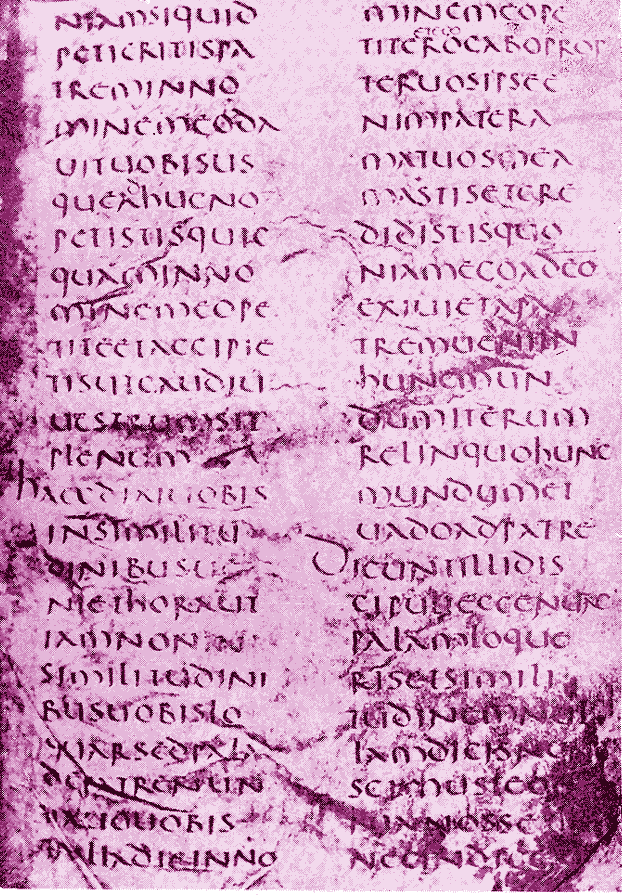Vetus Latina (“Old Latin” in Latin; a classic language belonging to Indo-European ), also known as Vetus Itala (“Old Italian”), Itala (“Italian”) and Old Italic, and denoted by the siglum L (abbreviations used by ancient and medieval scribes writing in various languages, including Latin, Greek, Old English and Old Norse to indicate the source manuscript), is the collective name given to the Latin translations of biblical texts (both Old Testament and New Testament) that preceded the Vulgate (the Latin translation produced by Jerome in the late 4th century).
The Vetus Latina translations continued to be used alongside the Vulgate, but eventually the Vulgate became the standard Latin Bible used by the Catholic Church, especially after the Council of Trent (1545–1563) affirmed the Vulgate translation as authoritative for the text of Catholic Bibles. However, the Vetus Latina texts survive in some parts of the liturgy e.g., the Pater Noster.
As the English translation of Vetus Latina is “Old Latin”, they are also sometimes referred to as the Old Latin Bible, although they are written in the form of Latin known as Late Latin, not that known as Old Latin. The Vetus Latina manuscripts that are preserved today are dated from AD 350 to the 13th century.


Preserved in the Museo del Tesoro del Duomo (Capitulary library and archives) of Vercelli, in the Province of Vercelli, Italy, the Codex
There is no single “Vetus Latina Bible”. Instead, Vetus Latina is a collection of biblical manuscript texts that are Latin translations of Septuagint and New Testament passages that preceded Jerome’s Vulgate.
When Jerome undertook the revision of Latin translations of Old Testament texts in the late 4th century, he utilized the Septuagint and Vetus Latina translations that were then available. He broke with church tradition and translated most of the Old Testament of his Vulgate from Hebrew sources rather than from the Greek Septuagint. His choice was severely criticized by Augustine, his contemporary; a flood of still less moderate criticism came from those who regarded Jerome as a forger. While on the one hand he argued for the superiority of the Hebrew texts in correcting the Septuagint on both philological and theological grounds, on the other, in the context of accusations of heresy against him, Jerome would acknowledge the Septuagint texts as well.
Jerome did not have access to the modern Hebrew text aka Leningrad Codex written in 1100 AD, and is known to be a highly corrupt document. But he used a Proto-Hebrew text, probably a copy of the Dead Sea Scroll family.
Jerome’s Vulgate offered a single, stylistically consistent Latin text translated from the original tongues, and the Vetus Latina translations gradually fell out of use. Jerome, in a letter, complains that his new version was initially disliked by Christians who were familiar with the phrasing of the old translations. However, as copies of the complete Bible were infrequently found, Vetus Latina translations of various books were copied into manuscripts alongside Vulgate translations, inevitably exchanging readings.
Vetus Latina translations of single books continued to be found in manuscripts as late as the 13th century; especially in those books where the Vulgate version is not from Jerome, as with the New Testament outside the Gospels. However, the Vulgate generally displaced the Vetus Latina as the standard Latin translation of the Bible to be used by the Catholic church, especially after the Council of Trent (1545–1563).
Source:
https://www.djspeckhals.com/posts/2022-03-01-journey-into-a-waldensian-bible/
https://www.historyofinformation.com/index.php?cat=112
Documentaries on the Martyrdom of the Early Christian Church:
https://kingdomtruther.com/church-history-told-from-the-perspective-of-the-martyrs/
